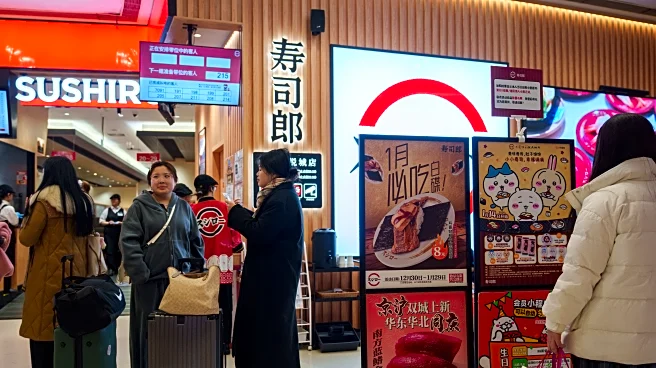Rapid Read • 8 min read
Saks Fifth Avenue is planning to close its store in San Francisco's Union Square once it finds a buyer for the property. This decision comes as part of a broader trend of retail closures in the area, which has seen a decline in major department stores. Nordstrom has already closed, and Macy's is expected to follow suit. The closures are occurring amidst a backdrop of San Francisco's post-pandemic challenges, including a high office vacancy rate and concerns about crime. Despite these issues, the city is experiencing a resurgence in tourism and cultural attractions, with new installations and events drawing visitors.
AD
The closure of Saks Fifth Avenue in San Francisco highlights the shifting landscape of retail in urban centers, particularly in areas like Union Square that have traditionally been tourist hotspots. This trend reflects broader economic challenges facing brick-and-mortar stores, exacerbated by the pandemic and changing consumer behaviors. The decline in major retailers could impact local employment and the economic vitality of the area, while also influencing the city's reputation as a shopping destination. However, the increase in cultural and tourist activities suggests a potential pivot towards other forms of economic engagement.
As Saks Fifth Avenue seeks a buyer for its property, the future of Union Square's retail environment remains uncertain. The area may see redevelopment efforts aimed at revitalizing its appeal to both locals and tourists. Stakeholders, including city planners and business leaders, may need to explore new strategies to attract and retain businesses. Additionally, the ongoing improvements in tourism and cultural offerings could play a role in reshaping the district's identity and economic prospects.
The closure of major retailers like Saks Fifth Avenue raises questions about the sustainability of traditional retail models in the face of e-commerce growth and changing consumer preferences. It also underscores the importance of adaptive urban planning and investment in diverse economic activities to ensure resilience against market fluctuations. The cultural and social dynamics of San Francisco may shift as the city navigates these changes, potentially influencing its long-term development trajectory.
AD
More Stories You Might Enjoy











